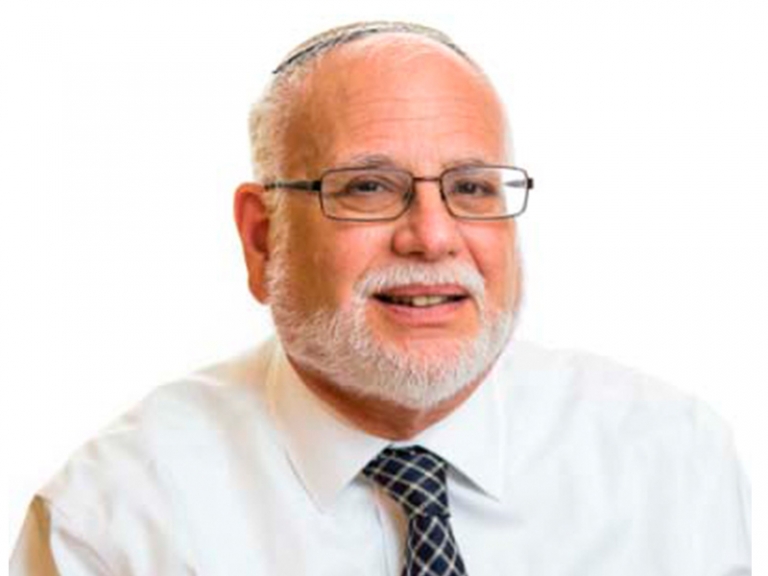D'var Torah by Dr. Kalman Stein, Head of School

Dear Hebrew Academy Community:
I have heard—I’m not sure of the source—that an interviewer once asked Rav Soloveitchik why he believed in God. The questioner certainly expected that this giant of Jewish Thought and Halakha would respond with a profound philosophical and spiritual explanation. The Rav’s response: “Because my father told me.”
This profound response is elaborated upon by Rabbi Adin Even Yisrael Steinsaltz in his Sefer Chayyei Shanah. Rav Steinsaltz explains that eating Matzah and refraining from Chametz is not only a commemoration of historical events but also participation in those events, our national and personal involvement in the process which took place in Mitzrayim more than three thousand years ago.
The Gemara in Berachot (40a) tells us that “a baby does not know how to call his parents Abba or Ima until he/she has tasted the taste of bread.” The Gemara is clearly making a connection between bread and human knowledge and understanding. Chassidic literature emphasizes that it is specifically the father whom the child cannot identify until he/she has tasted bread. Why? The connection of a child to a mother is natural, biologic, and instinctive. Mom equals food and nurturing. The connection to Abba is not innate and instinctive; it is recognized by the child only when he/she reaches a higher level of awareness and comprehension. But even when the child begins recognizing Abba he/she still does not really understand exactly what a father is and how he is connected with a child. For the child to go beyond the instinctive, beyond that which is apprehended through the senses, he/she must make an intellectual leap to a new, more sophisticated level of consciousness.
Pesach, as its very name demonstrates, is the holiday of skipping over, of leaping from one level to another. Am Yisrael in Egypt experienced the same difficulty of recognizing their Father that each individual experiences in one’s infancy. Pesach asks each of us to share in the experience of skipping to a higher consciousness. A nation of slaves was required to leap to a level that by any rational standard should have been inaccessible to them. As soon as the Jewish People called “Abba,” when they turned to Hashem in their suffering, God asked them to leap, to skip all of the intermediate intellectual and spiritual steps and to be ready for an encounter with the infinite and unknowable. Am Yisrael were indeed the Children of Israel when they left Egypt but were expected to recognize their Father, to understand what that meant, to know how to relate to Him. Their new consciousness was not achieved through an orderly rational process; they had to be prepared to make a leap of faith which was on the face of it undoable.
Matzah, argues Rav Steinsaltz, expresses the transition to this new level. Matzah is primitive, undeveloped, and imperfect. Matzah is the most basic product which still can be called bread, the most basic food that is identifiable as human. Matzah, therefore, expresses the transformation of Yetzi’at Mitzrayim both on a national level—the beginning of the Jewish Nation—and on a personal level—the first basic consciousness of the divine. This was the first time that our ancestors said “Abba” to their Father in Heaven, not on the basis of intellectual development but on the basis of a yet unformed and incomplete appreciation of God.
The process expressed by eating Matzah is the acquisition of the ability to accept that which is not yet understood as axiomatically true. This is the readiness to recognize that there are things which we do not sufficiently understand but which we, nevertheless, are asked to accept and believe. Little children do this all the time. They believe in Hashem “because my father told me,” but, of course, as little children they understand religious messages on a very simple and basic level. As children emerge as adolescents, as high school students, they are no longer prepared to accept religion simply because someone told them to. We, as parents and educators, need to approach these young men and women on two levels. On the one hand, we must teach Torah in the most sophisticated and intellectually challenging way so that our youngsters learn to wrestle comfortably with ideas and doubts. But we must also readily acknowledge that we, like our ancestors, are eating Matzah, that the adults to whom our children look for guidance not only started with a leap of faith but that we know that we will not, cannot, fully understand that which is not accessible to the human intellect but that this is not a barrier to complete faith. Perhaps that is why the Zohar calls Matzah:
מיכלא דמהימנותא
--the food of faith.
Chag Kasher V’Samai’ach,
Dr. Kalman Stein
Head of School

